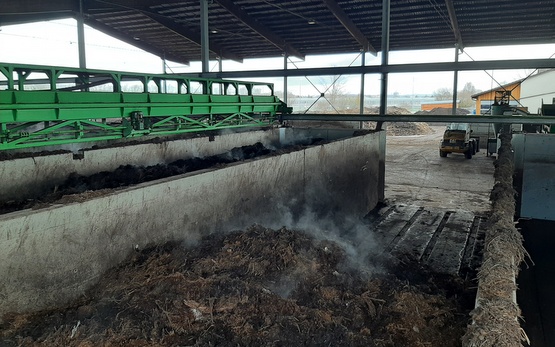As part of the circular economy, the recycling of biogenic residues can help to close material and energy cycles. The Agrocomposit project focuses on fertilisers and soil improvers that can be produced by composting with the addition of biochar (“agrocomposites”).

From biogenic residues to products
Biogenic residues regionally available in the project countries are used for composting and biochar production. Examples include aquaculture residues in Norway, sewage sludge in Hungary and fermentation residues (“digestate”) from the anaerobic digestion of municipal waste and green waste in Switzerland. The agrocomposites are tested for levels of nutrients, carbon and pollutants among other constituents.
Agricultural utilisation
Promising agrocomposites are tested in pot and field trials to determine their agricultural and environmental benefits. Yields are compared with those of other fertiliser options. We are also investigating nutrient availability, nutrient efficiency (from biogenic residues to harvested crops), carbon sequestration and inputs of potential pollutants. The primary aim is to further improve the sustainability of cultivation systems and to support essential ecosystem services for nutrient cycling, water storage, habitat and filtration.
Sustainability along the value chain
Life cycle assessment (LCA), cost-efficiency calculations and environmental risk assessment are used to compare the agrocomposites with other fertiliser and biogenic residue treatment options. LCA takes account of the value chain from biogenic residue to harvested product, in order to quantify the environmental impacts of different agrocomposites and other fertiliser options.
Contact
Project partners
- Budapest University of Technology and Economics
- Norwegian Institute of Bioeconomy Research (NIBIO)
- Jordpro (Norwegen)
- Fachhochschule Nordwestschweiz (FHNW)
Team@Agroscope





